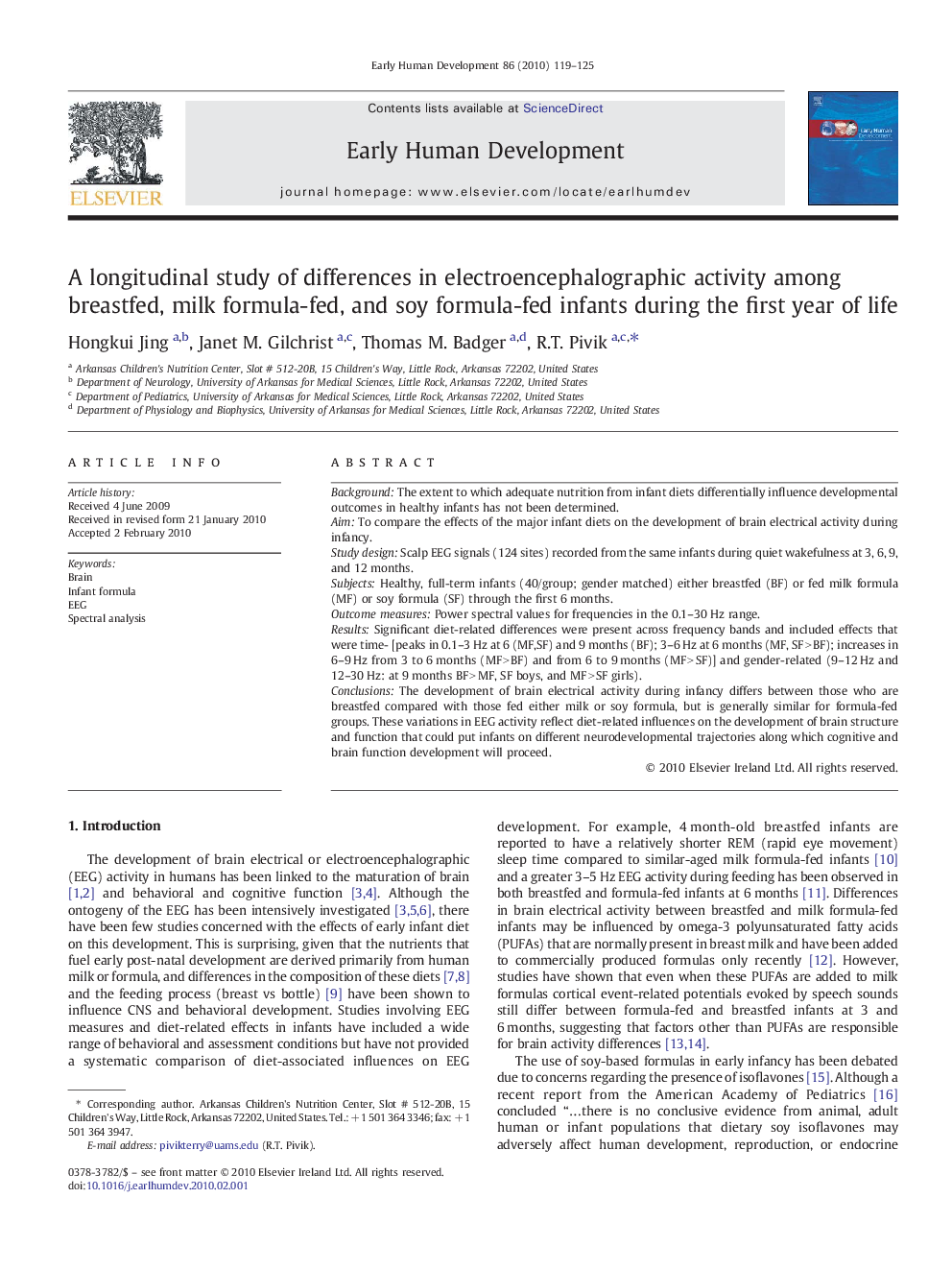| Article ID | Journal | Published Year | Pages | File Type |
|---|---|---|---|---|
| 3917699 | Early Human Development | 2010 | 7 Pages |
BackgroundThe extent to which adequate nutrition from infant diets differentially influence developmental outcomes in healthy infants has not been determined.AimTo compare the effects of the major infant diets on the development of brain electrical activity during infancy.Study designScalp EEG signals (124 sites) recorded from the same infants during quiet wakefulness at 3, 6, 9, and 12 months.SubjectsHealthy, full-term infants (40/group; gender matched) either breastfed (BF) or fed milk formula (MF) or soy formula (SF) through the first 6 months.Outcome measuresPower spectral values for frequencies in the 0.1–30 Hz range.ResultsSignificant diet-related differences were present across frequency bands and included effects that were time- [peaks in 0.1–3 Hz at 6 (MF,SF) and 9 months (BF); 3–6 Hz at 6 months (MF, SF > BF); increases in 6–9 Hz from 3 to 6 months (MF > BF) and from 6 to 9 months (MF > SF)] and gender-related (9–12 Hz and 12–30 Hz: at 9 months BF > MF, SF boys, and MF > SF girls).ConclusionsThe development of brain electrical activity during infancy differs between those who are breastfed compared with those fed either milk or soy formula, but is generally similar for formula-fed groups. These variations in EEG activity reflect diet-related influences on the development of brain structure and function that could put infants on different neurodevelopmental trajectories along which cognitive and brain function development will proceed.
